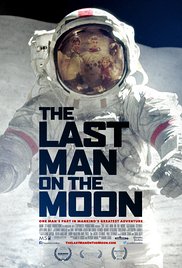
Books that make you who you are
Recently, I bought two books by Herbert A. Hutchinson who was a Chief System Engineer USAF LWF Program Office. The books are
Inside History of the USAF Lightweight Fighters, 1900 to 1975
As the book’s title says its about the history of fighters development in US Airforce. But what makes this book stand out of the likes is its emphases on engineering aspects of the fighter planes. Herbert Hutchinson brings unique perspective being an aerospace engineer.
The F-16 Fighting Falcon Multinational Weapon System, 1972 to 2019
This second book has some overlapping material with the book above. And it is focused mostly on nitty gritty details of the transition from YF-16 prototype to full blown F-16 fighter as it’s known today. By the way F-16 is the most numerous 4th generation fighter in the world.
Why these books?
As I wrote in a number of post previously here, here and here, the most interesting books about engineering topics, such as aviation, space, physics or mathematics are those that are written by engineers, physicist and mathematicians who can explain the subject from personal point of view. In the case of Herbert Hutchinson books he provides lots of valuable advice as an experienced system engineer and manager to fresh engineers. I find this advice crucial because you do not find this knowledge and experience transfer that often when you join a company as junior engineer.
As such these books resemble to me
- Rockets and People by Boris Chertok (chief control engineer of the soviet space program)
- The Power to Fly: An Engineer’s Life by Brian H Rowe who went from being mechanical engineer at General Electric to being the president of GE Aviation
- 747: Creating the World’s First Jumbo Jet and Other Adventures from a Life in Aviation by Joe Sutter who was chief engineer responsible for what we know now as Boeing – 747 and its power hose Boeing – 747-8 cargo jet
- Left Brains for the Right Stuff: Computers, Space, and History by Hugh Blair-Smith who was a staff engineer at Draper Lab and created and updated the assembler program YUL, also a version control system and manufacturing aid, as the Apollo Guidance Computer – AGC developed.
- Chasing New Horizons: Inside the Epic First Mission to Pluto by Alan Stern, David Grinspoon this book was written by Alan Stern who is the Principal Investigator of the New Horizons spacecraft that visited Pluto for the first time ever.
Engineering is the core human activity
I hope you got what I had in mind. Well, if you like these topics as I do, then I guess you may find the books above more than interesting.



























